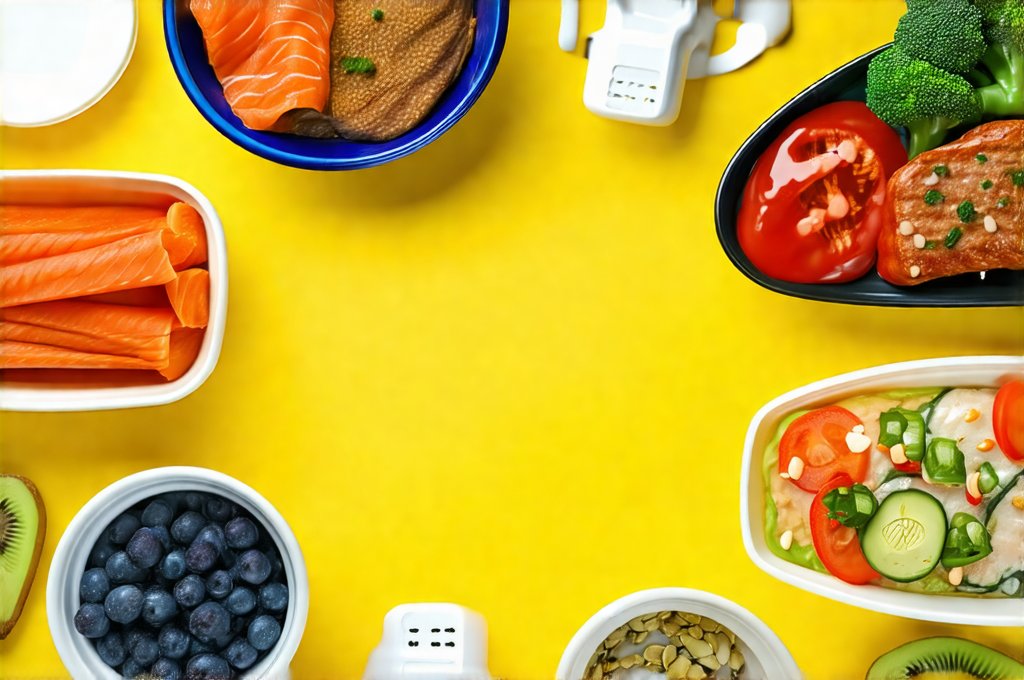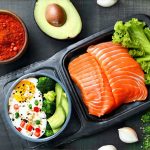Post-workout nutrition is often discussed as crucial for recovery, muscle repair, and replenishing energy stores. However, many individuals experience uncomfortable digestive issues like gas, bloating, and cramping after consuming typical post-exercise meals. This can negate the benefits of a good workout, leaving you feeling sluggish and unwell instead of revitalized. The challenge lies in finding options that effectively support recovery without triggering gastrointestinal distress. Understanding why certain foods cause gas is the first step towards building a more comfortable and effective post-workout routine. It’s not always about eliminating entire food groups but rather making informed choices and potentially adjusting portion sizes or preparation methods to better suit your individual digestive system. If you suspect specific foods are triggering issues, exploring common foods can be a helpful starting point.
The common culprits behind post-workout gas are often related to the types of macronutrients consumed and how they interact with the body during digestion, particularly after strenuous exercise. When we work out, blood flow is diverted away from the digestive system towards muscles, potentially slowing down the normal digestive process. Adding a large volume of complex carbohydrates or fiber immediately afterward can overwhelm this already-compromised system. Furthermore, some individuals have sensitivities to specific food components like fructose, lactose, or certain types of proteins which become more pronounced when digestion isn’t operating at peak efficiency. The goal is to find a balance between providing the nutrients needed for recovery and minimizing digestive upset. Being aware of foods that don’t cause trouble can help simplify choices.
Optimizing Macronutrient Ratios for Digestive Comfort
The ideal post-workout meal isn’t about massive quantities of any single macronutrient; it’s about balance. A combination of protein, carbohydrates, and healthy fats is essential, but the proportions should be tailored to your workout intensity and individual tolerance. Focusing on easily digestible forms of each is key to minimizing gas production. For example, opting for lean protein sources over high-fat cuts can significantly reduce digestive burden. Similarly, choosing quicker-digesting carbohydrates like white rice or a banana over large portions of beans or broccoli will be gentler on the system.
Complex carbohydrates are important for replenishing glycogen stores depleted during exercise, but timing and type matter. Immediately post-workout, a simpler carbohydrate source is generally better tolerated as it’s absorbed more quickly. As digestion gradually returns to normal, you can introduce more complex carbs with later meals. Healthy fats play a role in hormone production and overall recovery, but excessive fat intake immediately after exercise can slow down digestion. A small amount of healthy fat – think avocado or a tablespoon of nut butter – is sufficient without causing discomfort.
Finally, hydration plays a critical role. Dehydration can exacerbate digestive issues and contribute to gas formation. Drinking water during and after your workout helps keep things moving smoothly through the digestive tract. Consider electrolyte-rich beverages as well, especially if you sweat profusely during exercise, as imbalances in electrolytes can also affect digestion. Remember, individual responses vary greatly, so experimentation is crucial to determine what works best for your body. Some find that morning beverages set the tone for a less reactive digestive system throughout the day.
Protein Sources That Minimize Gas
Protein is vital for muscle repair and growth, but certain protein sources are notorious for causing gas and bloating. Legumes, while incredibly nutritious, contain complex carbohydrates called oligosaccharides that the human digestive system struggles to break down, leading to fermentation in the gut and subsequent gas production. Red meat can be difficult to digest due to its high fat content. Fortunately, there are many excellent protein options that are generally easier on the stomach:
- Lean poultry (chicken breast, turkey) is easily digestible and provides a complete protein source.
- Fish, particularly white fish like cod or halibut, is another great option with minimal fat content.
- Egg whites offer pure protein without the cholesterol found in yolks.
- Whey protein isolate is a rapidly absorbed form of protein that’s often well-tolerated, but some individuals may experience issues so start with small amounts.
- Collagen peptides are another easily digestible protein source that supports joint health and recovery.
When preparing protein sources, consider cooking methods like steaming, grilling, or poaching, which minimize added fats and facilitate easier digestion. Avoid frying or adding heavy sauces. Portion control is also crucial; consuming excessive amounts of protein can overwhelm the digestive system. Understanding how additives might interact with your body can further refine choices.
Carbohydrate Choices for Sensitive Systems
Carbohydrates are essential for replenishing glycogen stores, but again, not all carbs are created equal. Certain carbohydrates, particularly those high in FODMAPs (Fermentable Oligosaccharides, Disaccharides, Monosaccharides and Polyols), can trigger gas and bloating in susceptible individuals. These include fructose found in many fruits, lactose in dairy products, and certain types of fibers. Choosing low-FODMAP carbohydrate sources is a good starting point:
- White rice is easily digestible and provides quick energy.
- Bananas (ripe but not overripe) are a good source of potassium and carbohydrates.
- Sweet potatoes are more easily digested than regular potatoes and offer valuable nutrients.
- Oatmeal (prepared with water, not milk) can be a comforting and nutritious option if tolerated well.
Avoid large portions of cruciferous vegetables like broccoli and cauliflower immediately post-workout, as they contain raffinose, another carbohydrate that’s difficult to digest. If you tolerate them otherwise, introduce small amounts later in the day when digestion has normalized. Consider experimenting with different types of carbohydrates to identify those that are best suited for your digestive system. It’s also worth considering if sweeteners might be contributing factors.
The Role of Fats and Digestive Aids
While fats shouldn’t be the primary focus of a post-workout meal, a small amount of healthy fat can aid in nutrient absorption and promote satiety. However, high-fat foods slow down digestion and can contribute to bloating. Ideal choices include:
- Avocado: A source of monounsaturated fats and essential nutrients.
- Nut butters (almond, peanut) in moderation – choose natural varieties without added sugar or oils.
- Small amounts of olive oil used for cooking or dressing.
Beyond dietary choices, certain digestive aids can help minimize gas production. – Ginger has anti-inflammatory properties and can aid digestion. Consider adding a small piece to your meal or drinking ginger tea. – Peppermint can relax the muscles in the digestive tract, reducing bloating and cramping. Peppermint tea is a readily available option. – Probiotics support gut health by promoting beneficial bacteria, potentially improving overall digestion and reducing gas formation. Incorporate probiotic-rich foods like yogurt (if tolerated) or consider taking a supplement.
It’s important to remember that digestive health is complex, and what works for one person may not work for another. Paying attention to your body’s signals and experimenting with different food combinations and strategies will ultimately lead you to a post-workout nutrition plan that supports both recovery and comfort.


















